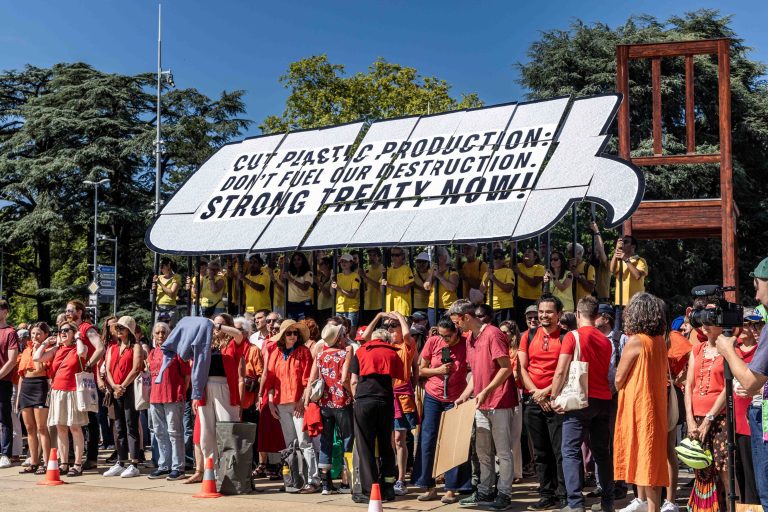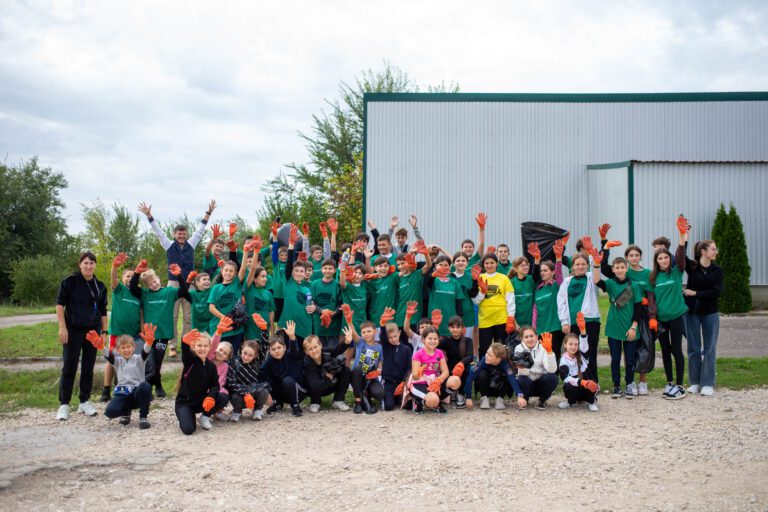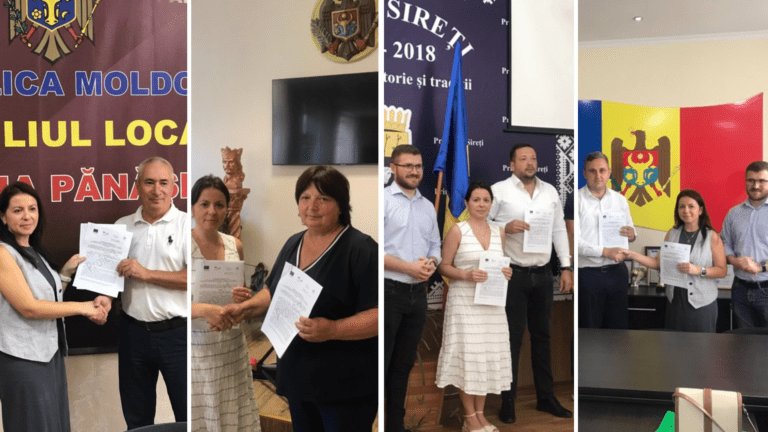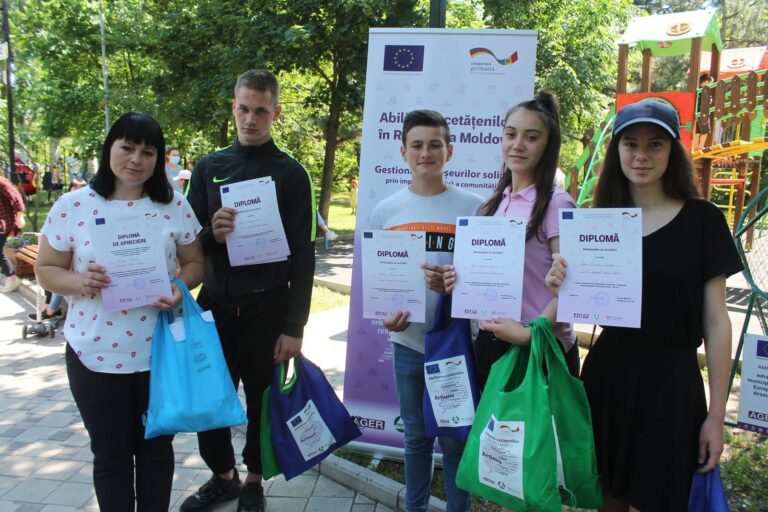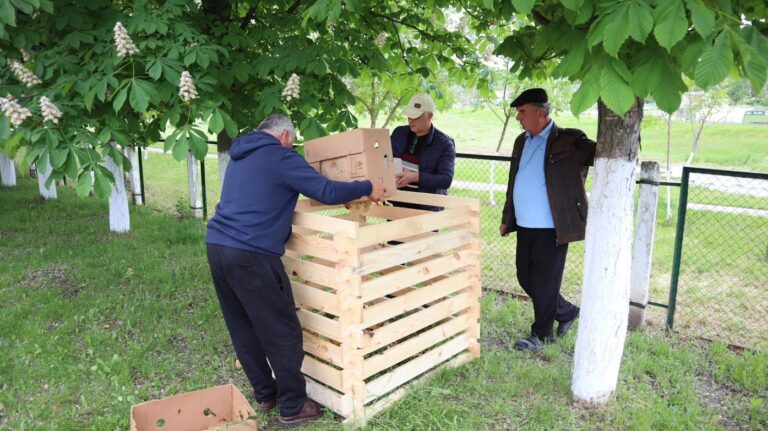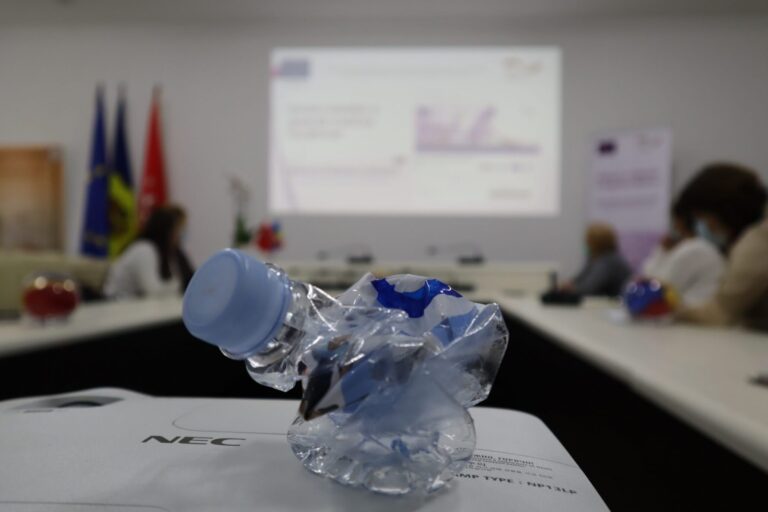It is "ruble", I will sort. We separate the waste, we have what for
Details
Text, photo, video: Carolina Buimestru
"No, I don't sort. The only thing I sort is paper - notebooks, textbooks... They're scraps, I take them there and make money. "Ruble".When I agreed to write about the garbage from Străseni, I did not expect that I would discover such an acute problem. First of all, I went to talk to the residents in the center of Străseni - clearly, few rushed to answer my questions. As I expected, the world has bigger worries than sorting, recycling, the fate of the Străseni garbage man, even if most of them know that garbage affects the earth, groundwater and so on. I found out that very few sort. Some separate the paper for the "ruble", but most do not believe that in the existing system recycling is possible. On the same day, I also arrived at the Străseni waste collection point, on a hill above Fundăturia (Străseni sector), not even 3 km from the city.
The landfill from Străşeni
It would cover about 166 sports fields. It had rained in the evening and on the edge you could easily see the traces of the water that had flowed down the valley, which made its way among the foul-smelling piles covered with flies.
On the top of the hill I met Ludmila Chiriac, councilor of the municipality of Străseni, responsible for the sanitation sector. He told me that the landfill was created in 1972, was expanded two years ago and is intended only for the residents and businesses of the municipality of Străseni.
Ludmila Chiriac is concerned that the underground water that supplies the city could be affected by the toxins that leak from the garbage stored at the landfill. Air and soil are also polluted. According to her, the garbage must be relocated - for example, a space must be allocated for the whole district, further away from the localities. Over the years, the garbage has been covered with soil, and currently the deposited layer is so large that it releases methane gas and ignites, especially in summers with temperatures of 40 degrees. The current situation is characterized by the councilor as "ecological catastrophe".
Also, Ludmila Chiriac told me that the daily volume of municipal waste stored here is 30-40 m3, while it should be three times less, i.e. a maximum of 10 m3. At this rate and volume, in 1 year the polygon will no longer have space.

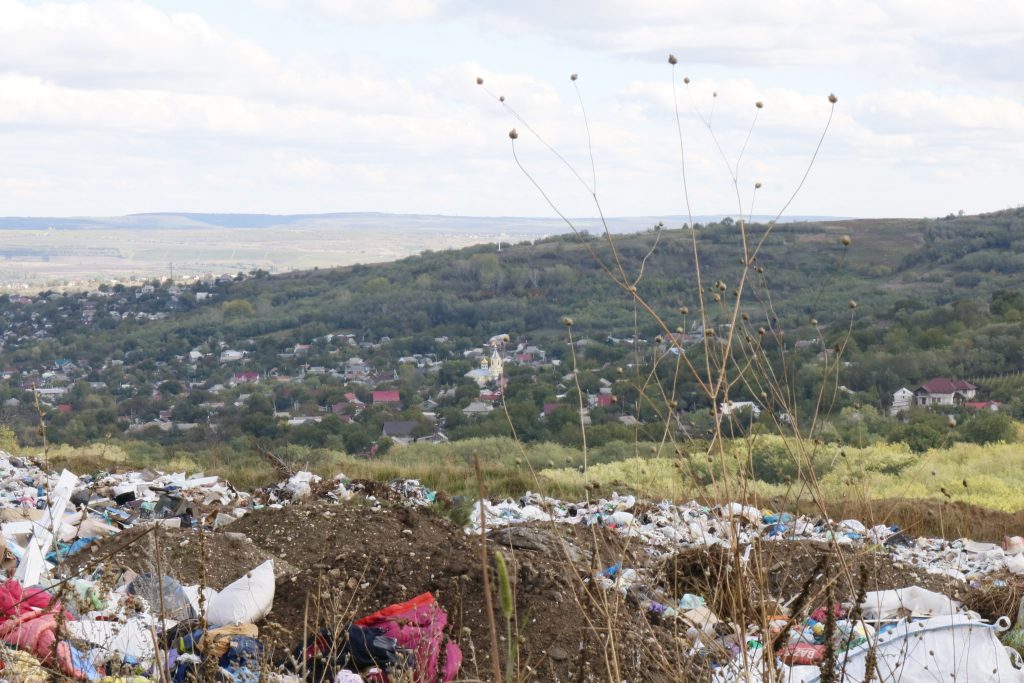

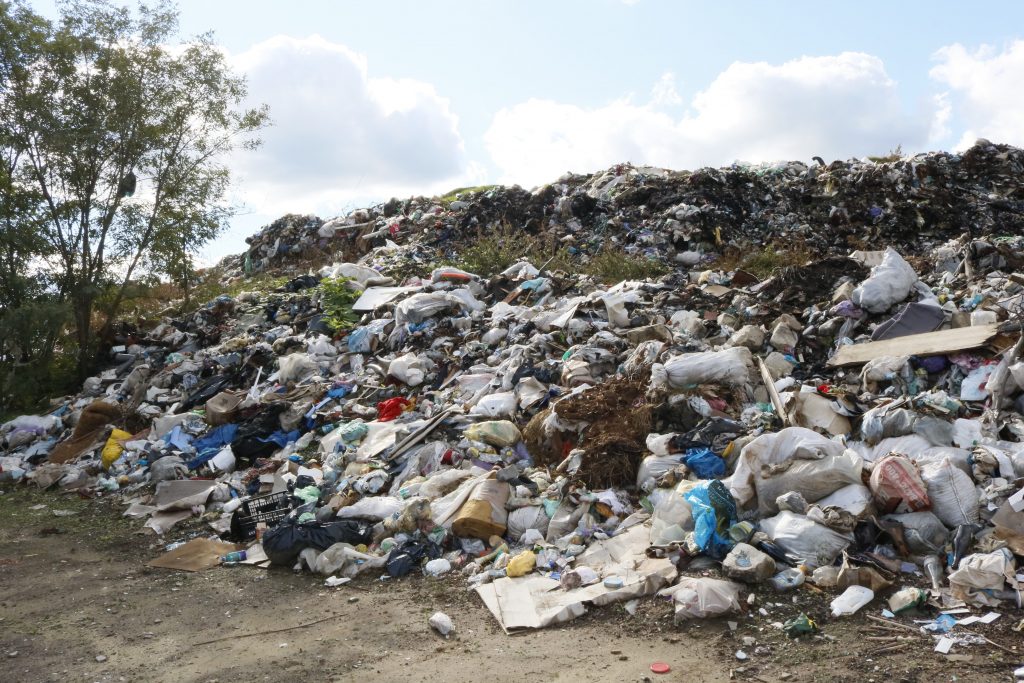
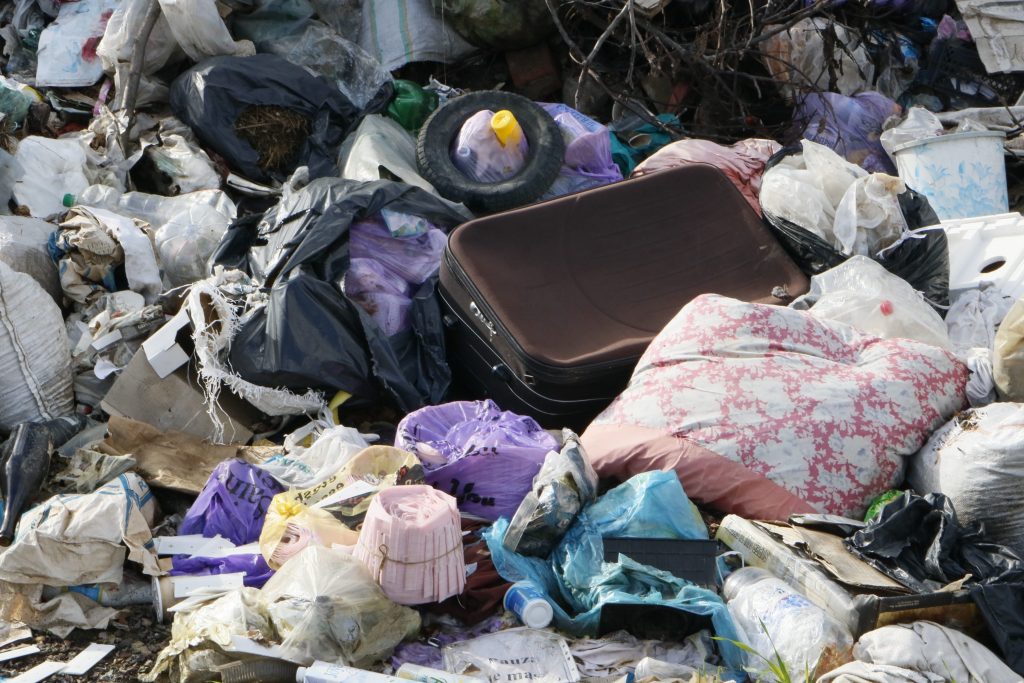
Waste sorting
In order to reduce the amount of stored waste, the inhabitants of the municipality of Străşeni were proposed to participate in the program of selective collection of plastic. The collection is carried out by the ÎM "Gospodaria Comunală Străşeni".
The first 5 platforms for plastic collection were installed in 2019. Currently, there are already 15 containers, and the company plans to increase their number up to 20 units.
In the private sector, plastic collection takes place once a month – the car goes from gate to gate and collects the waste. This service is not included in the monthly payment of private sector residents. After collection, the plastic mass is transported and recycled by the economic agent contracted by the company - SRL "Salubris Grup".
Unfortunately, only 30-40% of the city's residents comply with the norms of the collection process. For example, during a recent month, approximately 500-600 kg of plastic were collected from an entire neighborhood, which is very little, says Ludmila Chiriac. Even after being informed with the help of leaflets, the population does not want to selectively collect plastic.
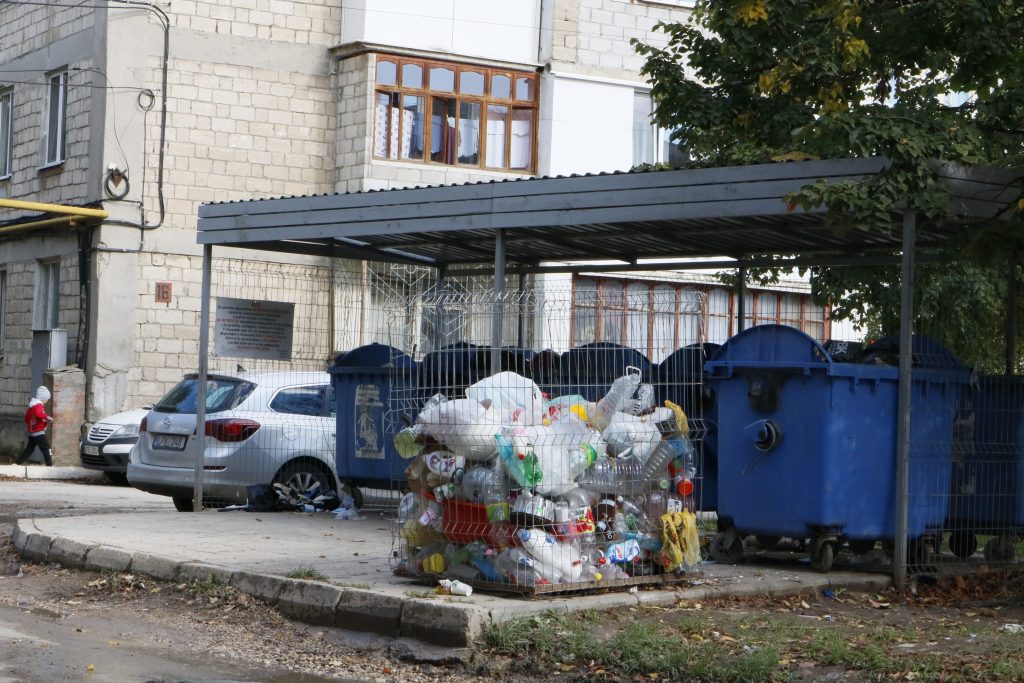
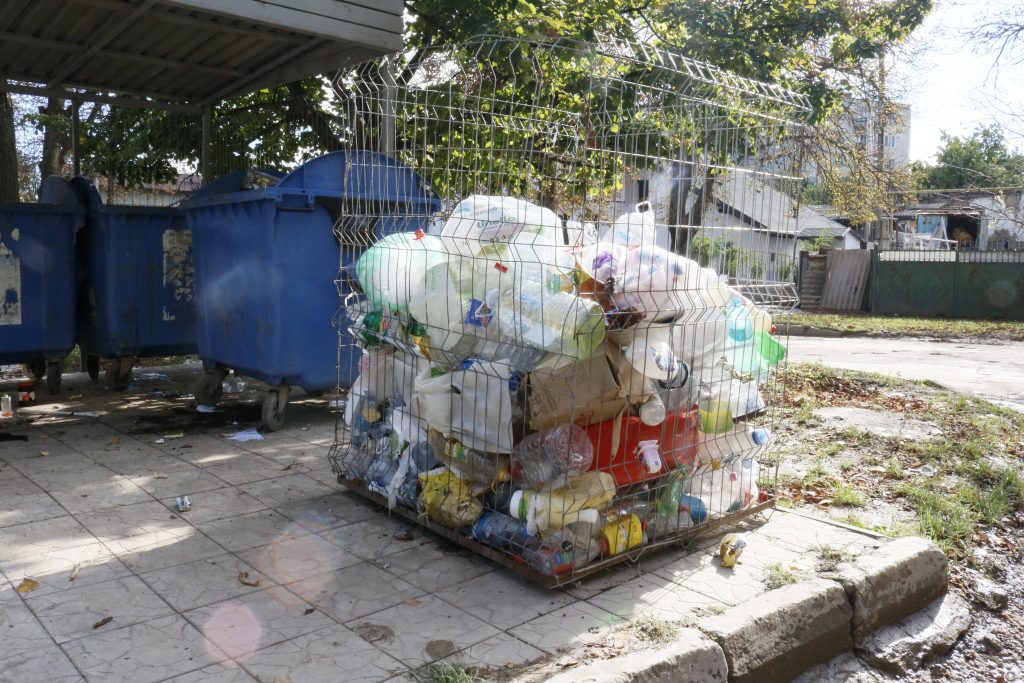
Gheorghe Guțan, the head manager of the ÎM "Gospodăria Comunală Străşeni", has been working in the field for more than 15 years, being enlisted alongside Ludmila Chiriac in the administration of the sanitation process of the municipality.
Discussing the problem of sorting, he believes that some of the inhabitants of the municipality still do not accept the concept of separate collection, considering it as a waste of time. At the same time, they often throw in the special containers for PET bottles and other categories of waste, so that sanitation workers have to sort it once more.
Selective collecting will take root
However, councilor Ludmila Chiriac hopes that selective collection will take root in the municipality of Străseni. He sees this as possible thanks to recently launched initiatives. One of them is the EU-GIZ project "Management of solid waste through the active involvement of the community", which is to be carried out by the Waste Recovery Association (AVD) in 6 localities in the Străseni district (Străseni municipality, Scoreni village, Lozova commune, the village of Vorniceni, the village of Negresti and the village of Sireți). Aurelia Bahnaru, president of AVD, says that the project financed by the European Union and implemented by GIZ Moldova, aims not only to create infrastructure, but especially to educate responsible behavior among citizens, with several activities planned to motivate, explain, accurately argue the processes and the importance of selective collection.
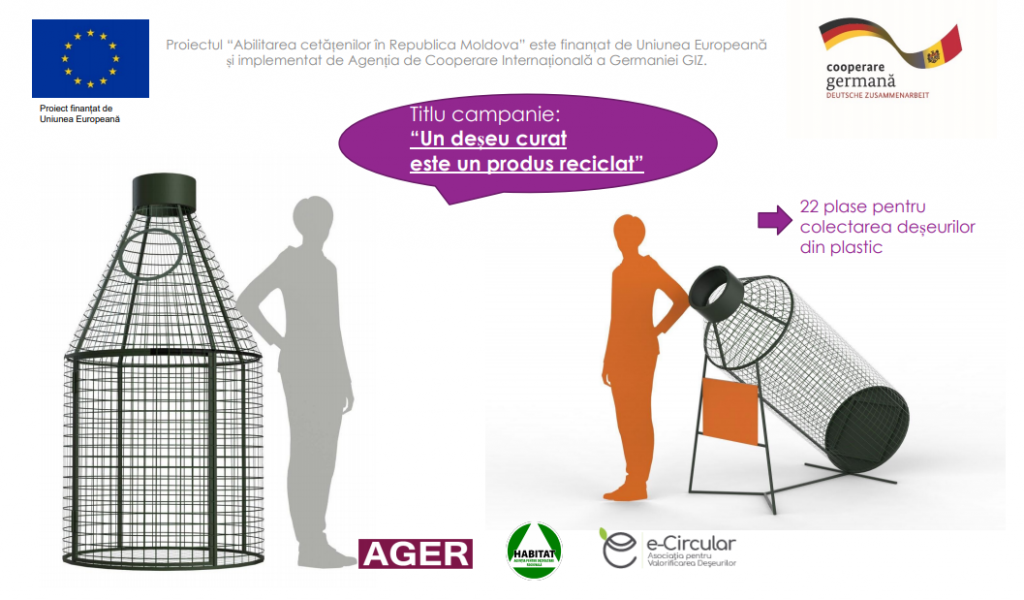
The situation of the landfills in the entire district
The data of the Străseni Environmental Protection Inspection in the 39 localities of the district are 24 authorized waste depots at the level of town halls. Only the warehouse in the village of Romanesti has the approval of the ecological expertise for the project. The storage places are various: in silo pits or pits for animal manure, quarries, slopes affected by landslides, roadsides, etc. Most of them are not furnished and do not have a construction project. In practically all warehouses, the waste is stored chaotically, there is no compaction of it, periodically being only collected, not guarded (with the exception of the warehouse in Străşeni).
City halls do not keep records of waste and quantities transported to landfills. A number of landfills are archipelagos (Tătăreşti, Găleşti, Zubreşti, Codreanca, Negreşti), lacking the possibility of expanding the land for waste storage.
An example of plastic collection has, since this year, the Sireţi City Hall, where most households have concluded contracts for the provision of services and delivery of containers. During 2020, a quantity of 8 cubic meters of plastic has already been accumulated, which will be delivered to the company "ABS Recycling" for recycling.
The action plan for 2015-2020 of the Străseni district placed less emphasis on waste management, the priority being the water supply of the population. However, currently more and more localities are involved in various projects, dumpsters are placed and separate waste collection takes place.
The Association of Environmental Journalists and Ecological Tourism is the beneficiary of the Local Grants Program of the European Union (EU) and implements the project "Responsibility through information in the localities of Codrenia" in the Străseni district.
The Local Grants Program is launched on the basis of the EU Single Support Framework, granted for the Republic of Moldova (2017-2020) within the European Neighborhood Instrument, through the project "Empowering the citizens of the Republic of Moldova" (2019-2021), financed by European Union and implemented by the German International Cooperation Agency (GIZ). The project partner for increasing the potential for visibility and citizen involvement is the Independent Press Association (API).

Related articles
Este timpul pentru acțiuni decisive: societatea civilă cere un Tratat Global ambițios care să pună capăt
On the occasion of World Cleanup Day, over 70 children from the towns of Cantemir and Ceadir-Lunga
NGO E-Circular Training and Consulting Center, as a partner of the "EU4Moldova: Local Communities" Program
The "Fugi de PLASTIC/Run from PLASTIC" project is designed by AO "EcoDigital" in partnership with AO Centrul
AO "E-Circular" Training and Consulting Center in partnership with AO Verde e Moldova and the City Hall
On September 27, in the premises of the Străseni City Hall, the project completion conference was held
Between September 17 and 21, 2021, AO Association for Waste Recovery organized 3 workshops
On Saturday, June 12, the "Mihai Eminescu" Park in the municipality of Strășeni hosted a special event, the Awards Gala
Between May 17 and 31, 2021, AO Association for Waste Recovery organized 6 workshops
Only an informed community aware of the danger of PLASTIC pollution makes it possible and determines success

